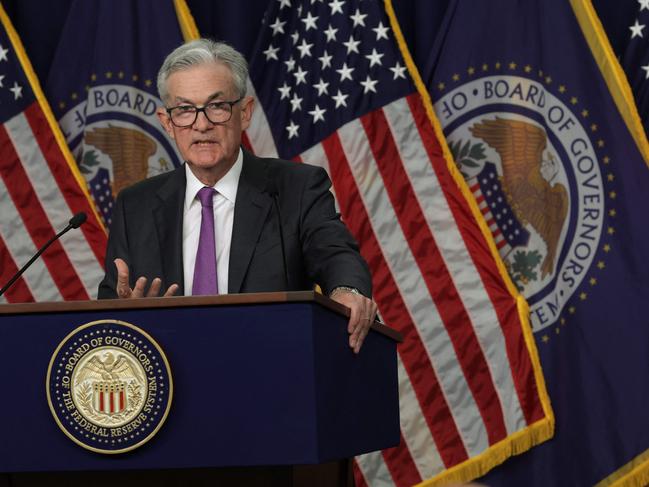The Dow index recorded a 13th-straight rise – its best winning streak since 1987 – which left those who had shorted the market with sickening losses.
Investors short a market by selling shares they don’t own in the hope of buying them back at a lower price.
In the first half of the 2023 calendar year a large group of American investors believed that US shares were overpriced and embarked on a massive program of short-selling of leading American shares.
The subsequent rise in US shares means that massive paper losses have been suffered and almost certainly short covering has underpinned the recent daily rises in US shares.
At the end of June, American sharemarket shorting had reached around $US1 trillion and the paper losses had exceeded $US100bn.
Since then the losses would have compounded despite some short covering.
Around Wall Street one of the greatest centres of speculation is whether continued regular market rises will trigger massive short covering because the losses become too great to finance.
If that happens it is likely there will be a sharp rise in US stocks that almost certainly won’t be maintained once shorting has been returned to sustainable levels.
To be fair, some of the shorting has been undertaken to protect long-term investments against the big fall, but there remains a substantial portion of heavy gambling on the basis that Wall Street was headed for a big fall.
Those who buy shares are always vulnerable to big falls in the market but their losses are limited to the outlays they have undertaken.
Those with short positions have no limit to the amount of loss.
Accordingly, those who have shorted heavily face a terrible dilemma.
Do they cover their shorts now or stay short in the expectation that US companies will falter?
Those staying short must also hope that they and their co-shorters can hold the their ground and not spark a short covering debacle.
What the shorters need is widespread profit disappointments that will force share prices lower.
But so far that has not happened.

Unlike Australia, US mortgage rates are fixed for existing borrowers and it’s only recent dwelling purchasers that must pay the higher rates.
In addition, the American government is spending on a large scale as part of its moves to use the best technology to decarbonise electricity generation and to re-establish a strong American industrial base and lessen dependence on China.
The massive outlays involved in this project are likely to keep US inflation and interest rates at higher levels then the token rates that existed before Covid-19.
Nevertheless, the liquidity in the economy and the cost savings that have been introduced are enabling many leading US companies to perform well.
Nothing illustrated that better than the owner of Facebook and other platforms, Meta, which reported 11 per cent revenue growth in the third quarter, sparking better than expected profit results.
The stock rose by about 5 per cent.
Meta earnings have been sluggish in recent quarters but the market expects that artificial intelligence and new technology will open a new era of prosperity for Meta and similar stocks.
Stocks set to benefit from the technology revolution have been big performers on Wall Street.
This is dreadful news for the shorters.
Australian share markets normally follow Wall Street but the mortgage stress phenomena that is unique to Australia is reducing consumer spending, which will impact the results of many important Australian companies and will make it harder for Australian shares to match Wall Street – particularly if the American market encounters a short covering boost.
The good news for Australia was that despite the American interest rate rise the Australian dollar held its ground because of the lower inflation figures.
We will need to keep reducing inflation or the currency markets will demand that Australian interest rates rise closer to US levels.







Not everyone was celebrating when Federal Reserve Chairman Jerome Powell hinted that after this month’s interest rate rise he might hold US official rates steady in September.